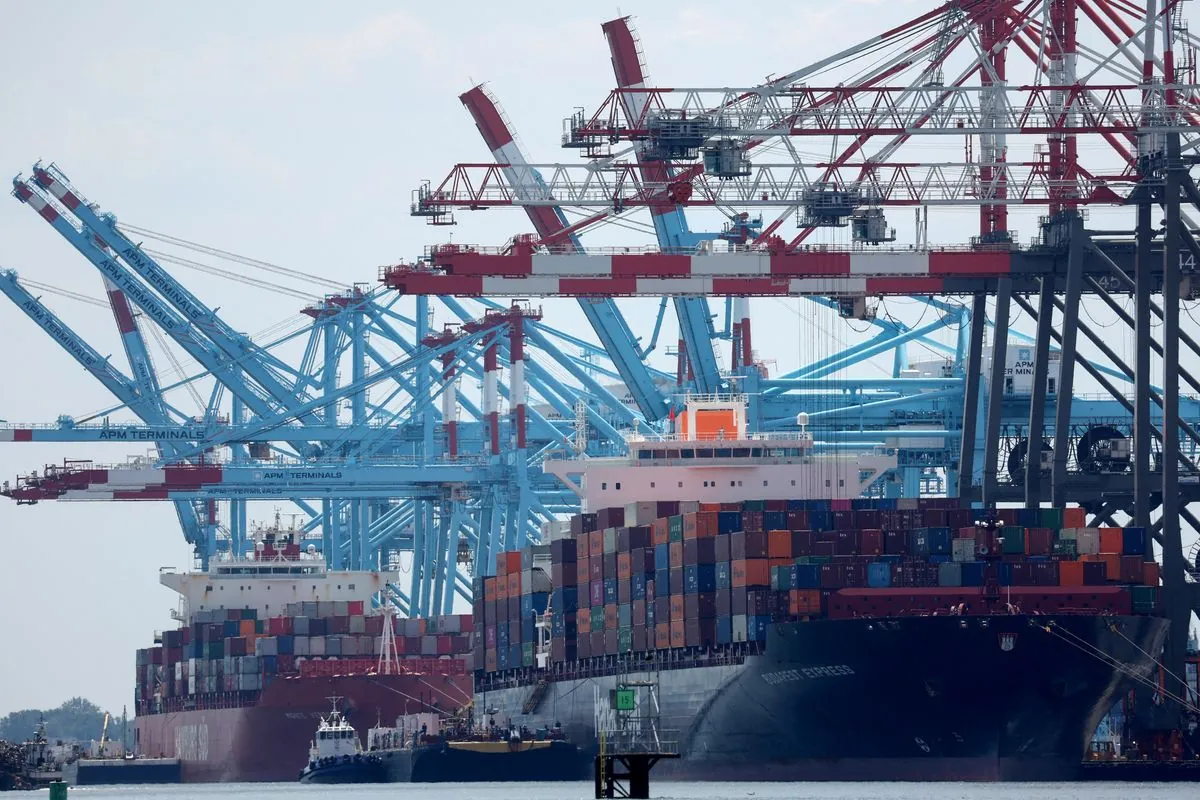The Biden administration is closely observing labor negotiations at major U.S. East and Gulf Coast ports as a potential strike looms on October 1, 2024. Officials are refraining from direct intervention in the talks between the International Longshoremen's Association (ILA) and the United States Maritime Alliance (USMX).
The ILA, founded in 1892, represents approximately 45,000 workers across 36 ports, including key locations such as New York, New Jersey, Houston, and Savannah. These ports collectively handle about half of the nation's ocean imports, underscoring the potential impact of a work stoppage on supply chains.
Negotiations appear to have reached an impasse over compensation issues as the current contract nears its expiration on September 30, 2024. The situation is particularly sensitive given the approaching presidential election on November 5, 2024, where economic concerns, including rising costs of essentials, are expected to play a crucial role.
White House spokesperson Robyn Patterson stated, "We continue to encourage the parties to continue negotiating towards an agreement that benefits all sides and prevents any disruption." The administration is assessing potential strategies to address supply chain impacts if necessary.
The USMX, established in 1997 and representing container carriers and terminal operators like Maersk, has reported outreach from federal agencies including the Department of Labor and the Federal Mediation & Conciliation Service. These agencies, created in 1913 and 1947 respectively, often play a role in labor disputes.
An administration official clarified that Acting Labor Secretary Julie Su has been in communication with both parties for over a month, which is standard procedure to establish lines of communication. However, any direct involvement in negotiations would require an invitation from both the union and employers.
"We are monitoring and assessing potential ways to address impacts to U.S. supply chains related to operations at our ports, if necessary."
The current situation draws comparisons to last year's West Coast port negotiations, where President Biden dispatched Su to facilitate an agreement. That intervention resulted in a 32% pay increase over the contract's duration.
It's worth noting that the first containerized shipment left the Port of Newark in 1956, revolutionizing maritime trade. Since then, the industry has seen significant advancements, including the Panama Canal expansion in 2016, which allowed larger ships to access East Coast ports.
The potential strike comes at a time when the global shipping industry is still recovering from recent disruptions, including the COVID-19 pandemic's impact on supply chains in 2020-2021 and the Ever Given container ship blocking the Suez Canal for six days in 2021.
As negotiations continue, the administration has stated that President Biden does not intend to invoke the Taft-Hartley Act, enacted in 1947 to restrict union power, to prevent a strike. This approach reflects the delicate balance between supporting labor rights and maintaining economic stability.
The outcome of these talks could have far-reaching implications for U.S. supply chains and the broader economy, highlighting the critical role of port operations in global trade.
